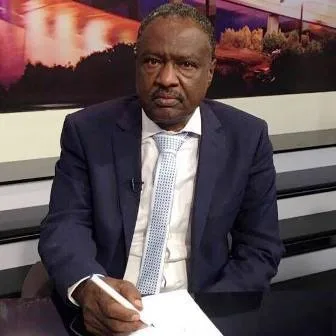Thieves of the Revolution

Rashid Abd al-Rahim
Yesterday marked the anniversary of the October Revolution, which changed the rule of General Ibrahim Abboud.
It was a revolution suffused with chants and songs by leftist poets and singers, foremost among them the artist Mohamed Wardi, who sang:
“Morning has broken; neither the prison nor the jailer remains.”
There was no one imprisoned, and General Abboud did not detain citizens; yet it was the left’s rule—and the left’s anthems—that turned falsehoods into accepted facts.
Those who fell in October were students from the University of Khartoum; they did not move beyond its grounds, nor did they enter prisons.
The right ignited October; it was they who pursued it and incited the public until the regime fell. Prominent among their figures was Dr Hassan al-Turabi, with the famous lecture in which he spoke about Southern Sudan. Then the University of Khartoum Students’ Union moved under Islamist leadership, headed at the time by Rabi‘ Hassan Ahmed, the union’s president.
The right had no voices among poets and singers with which to address the masses—something that allowed the left to steal their effort and their stances.
The Sudanese left had at its disposal a number of poets and performers skilled in composing verse and setting it to music, but their songs did not recount truth or fact. They were poems that excelled in stirring expression and moving people.
“In your name, the people triumphed,
The prison barrier was shattered,
The chains slipped down
like a wedding braid into the hands.”
There was no one in prison for political activity, nor for opposing the regime; all those around whom the October revolution gathered were students from the University of Khartoum, and those injured were injured within the university grounds.
‘Abboud’s rule was not, as the left portrayed it, a regime poor in achievement and tyrannical; rather, it was a government of accomplishments, productive in many of the things the citizen and the nation needed.
‘Abboud’s government succeeded in establishing numerous factories distributed across Sudan—from Karima in the north to the Malut factory in the south, and between them the factories of Babnusa, Managil and al-Junaid.
It managed to build many schools, hospitals and roads.
It was able to forge wide-ranging foreign relations, and General Abboud visited major countries from Russia to Yugoslavia, Britain and America.
What the military government under ‘Abboud achieved surpassed the performance of party governments in all the periods when they ruled.
Through its poetic prowess and stirring anthems, the left succeeded in changing governments while disregarding what citizens and the nation needed in order to build capacity in industry, agriculture, education and health.
The left sought to topple governments so it could seize power—and to be the more oppressive force—under whose eras prisons fill up, factory construction halts, schools cease to be built, and agriculture fails to expand.
The left does not care for people’s needs; it pursues its own ambitions, heedless of what befalls the nation.
Under Abboud they were his partners in his parliament, and then they were the ones who turned against him in October.
They remain in their blindness, whipping up the public with the memory of October, and by it they wish to return as rulers in the name of their imagined revolution—later named after April, and then after December.
Their poet said:
“And when the first bore the banner of October,
they returned at dawn and ignited April.”
In the most recent April, they remained partners in power until it spat them out. Hamdok stayed on as Prime Minister until he resigned of his own accord—no one obstructed him—yet their parties continued to claim there had been a coup against which they rose in December.
Left-wing parties have grown accustomed to submission before dictatorships. After sharing power, they returned to label as “dictatorship” every regime they opposed—from ‘Abboud, to Nimeiri, to the Salvation (Ingaz) government.
The left did not cease striving for power. They sided with Hemedti and supported him to this very day, and now they work to reclaim, as they allege, the December revolution.
Sudan, after a bitter experience of war, is not the Sudan that will submit to rule by the gun, nor to the aides and acolytes of those who carry it. The alliance of the Rapid Support Forces’ tribal base and the power-hungry party politicians—who have consistently failed to secure a parliamentary mandate with which to govern Sudan—will not rule.
Shortlink: https://sudanhorizon.com/?p=8212

